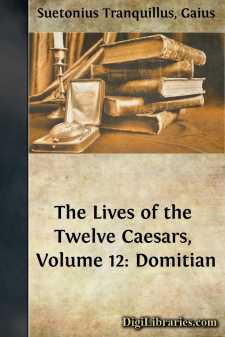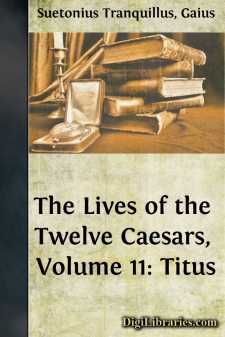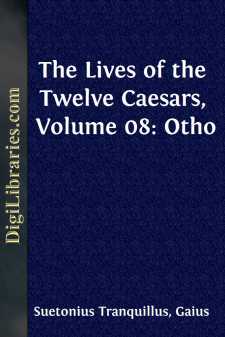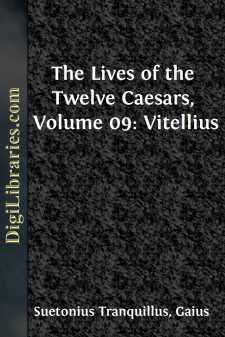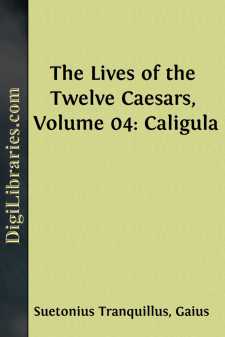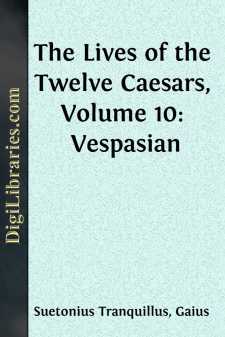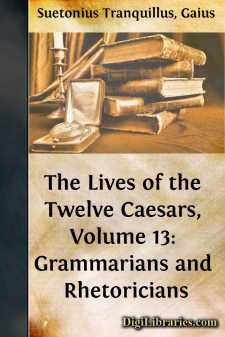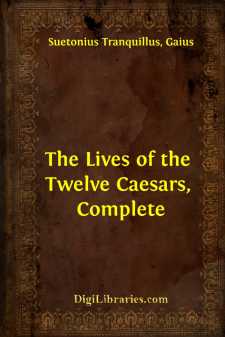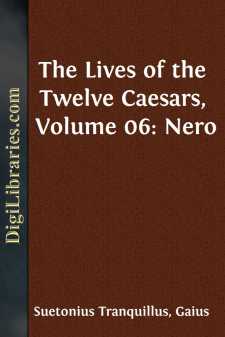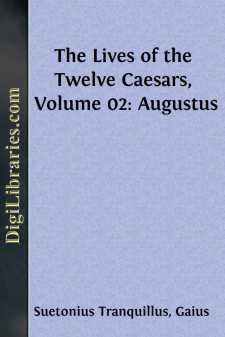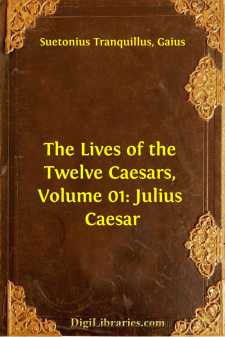Categories
- Antiques & Collectibles 13
- Architecture 36
- Art 48
- Bibles 22
- Biography & Autobiography 813
- Body, Mind & Spirit 142
- Business & Economics 28
- Children's Books 15
- Children's Fiction 12
- Computers 4
- Cooking 94
- Crafts & Hobbies 4
- Drama 346
- Education 46
- Family & Relationships 57
- Fiction 11828
- Games 19
- Gardening 17
- Health & Fitness 34
- History 1377
- House & Home 1
- Humor 147
- Juvenile Fiction 1873
- Juvenile Nonfiction 202
- Language Arts & Disciplines 88
- Law 16
- Literary Collections 686
- Literary Criticism 179
- Mathematics 13
- Medical 41
- Music 40
- Nature 179
- Non-Classifiable 1768
- Performing Arts 7
- Periodicals 1453
- Philosophy 64
- Photography 2
- Poetry 896
- Political Science 203
- Psychology 42
- Reference 154
- Religion 513
- Science 126
- Self-Help 84
- Social Science 81
- Sports & Recreation 34
- Study Aids 3
- Technology & Engineering 59
- Transportation 23
- Travel 463
- True Crime 29
The Lives of the Twelve Caesars, Volume 12: Domitian
Description:
Excerpt
TITUS FLAVIUS DOMITIANUS.
(479)
I. Domitian was born upon the ninth of the calends of November [24th October] [795], when his father was consul elect, (being to enter upon his office the month following,) in the sixth region of the city, at the Pomegranate [796], in the house which he afterwards converted into a temple of the Flavian family. He is said to have spent the time of his youth in so much want and infamy, that he had not one piece of plate belonging to him; and it is well known, that Clodius Pollio, a man of pretorian rank, against whom there is a poem of Nero's extant, entitled Luscio, kept a note in his hand-writing, which he sometimes produced, in which Domitian made an assignation with him for the foulest purposes. Some, likewise, have said, that he prostituted himself to Nerva, who succeeded him. In the war with Vitellius, he fled into the Capitol with his uncle Sabinus, and a part of the troops they had in the city [797]. But the enemy breaking in, and the temple being set on fire, he hid himself all night with the sacristan; and next morning, assuming the disguise of a worshipper of Isis, and mixing with the priests of that idle superstition, he got over the Tiber [798], with only one attendant, to the house of a woman who was the mother of one of his school-fellows, and lurked there so close, that, though the enemy, who were at his heels, searched very strictly after him, they could not discover him. At last, after the success of his party, appearing in public, and being unanimously saluted by the title of Caesar, he assumed the office of praetor of the City, with consular authority, but in fact had nothing but the name; for the jurisdiction he transferred to his next colleague. He used, however, his absolute (480) power so licentiously, that even then he plainly discovered what sort of prince he was likely to prove. Not to go into details, after he had made free with the wives of many men of distinction, he took Domitia Longina from her husband, Aelias Lamia, and married her; and in one day disposed of above twenty offices in the city and the provinces; upon which Vespasian said several times, "he wondered he did not send him a successor too."
II. He likewise designed an expedition into Gaul and Germany [799], without the least necessity for it, and contrary to the advice of all his father's friends; and this he did only with the view of equalling his brother in military achievements and glory. But for this he was severely reprimanded, and that he might the more effectually be reminded of his age and position, was made to live with his father, and his litter had to follow his father's and brother's carriage, as often as they went abroad; but he attended them in their triumph for the conquest of Judaea [800], mounted on a white horse. Of the six consulships which he held, only one was ordinary; and that he obtained by the cession and interest of his brother. He greatly affected a modest behaviour, and, above all, a taste for poetry; insomuch, that he rehearsed his performances in public, though it was an art he had formerly little cultivated, and which he afterwards despised and abandoned....


